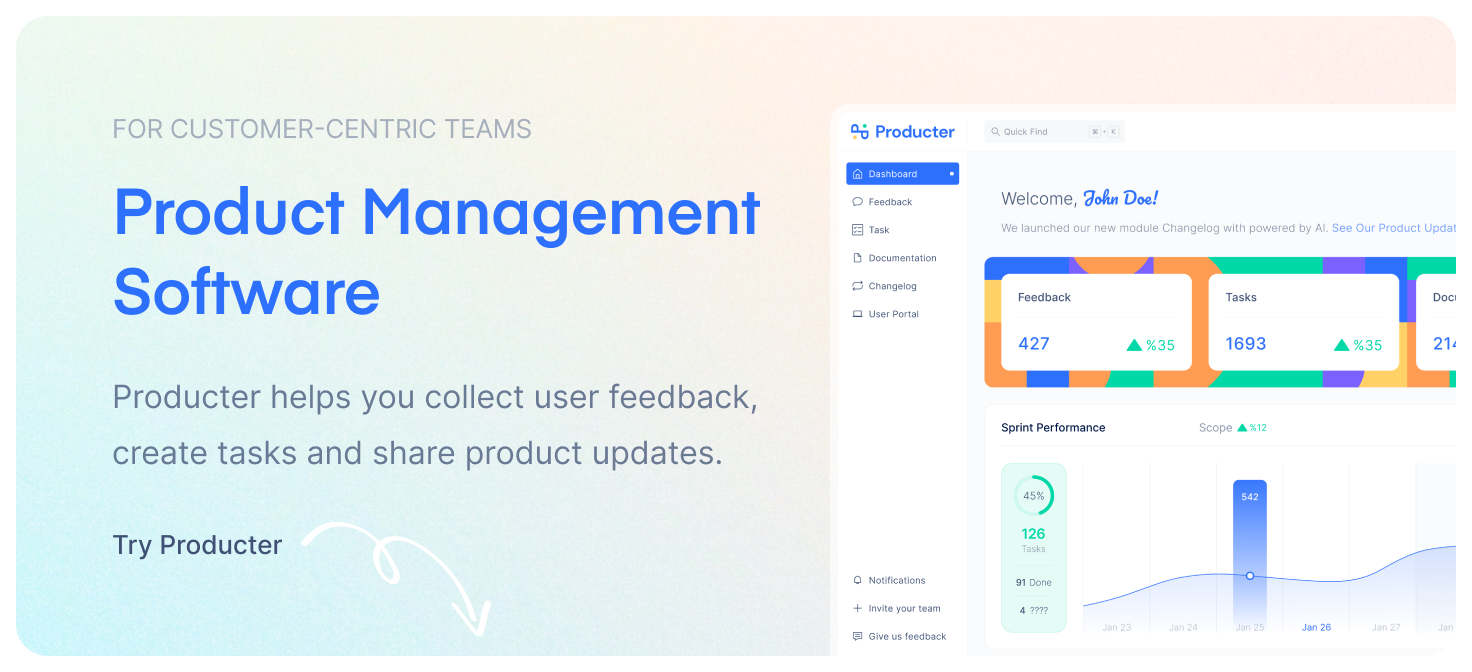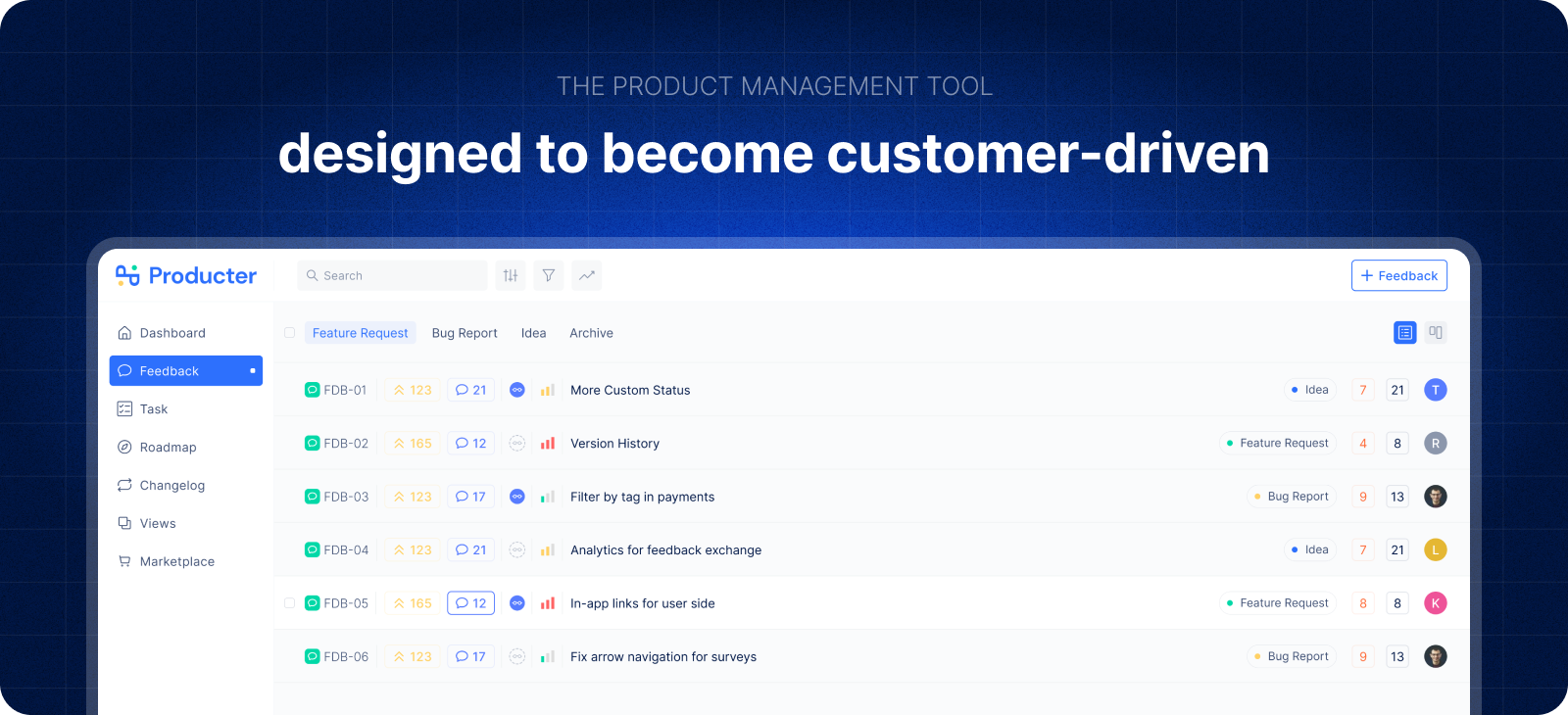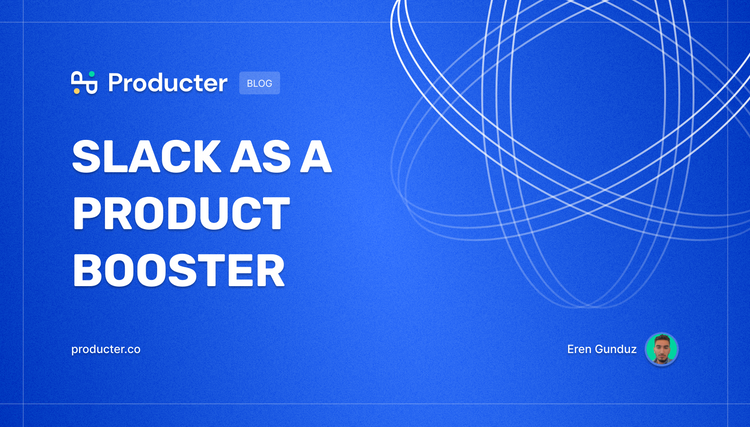👉🏻 Why Customer Feedback and Prioritization is Essential to Avoid Unnecessary Features and Potential Product Failure
Introduction
In the ever-evolving world of startups, one aspect remains constant: the importance of understanding and prioritizing your customers' needs.
A staggering 90% of startups fail, and according to CB Insights, 42% of them do so because they lack market demand for their product or service.
Too many startups fall into the trap of focusing on unnecessary features, undervaluing user feedback, or misprioritizing their development goals.
In this blog post, we'll explore why it's more crucial than ever for founders to listen to their customers and how doing so can make all the difference for your startup's survival.
Section 1: The Traps of Unnecessary Features
1.1 The Illusion of Innovation
Innovation is the lifeblood of the startup world, but not all new features are created equal.
Founders can easily fall into the trap of developing what they perceive as the "next big thing," only to find out that their target audience is uninterested or even repelled by these features.
A study by Pendo found that 80% of features in the average software product are rarely or never used.
1.2 The Costs of Unnecessary Features
There are several consequences of focusing on unnecessary features:
- Resource drain: Developing new features consumes time, money, and personnel. If these resources are directed towards unnecessary features, it can starve other aspects of your startup that may be more critical for success.
- User confusion: A complex product with too many features can overwhelm and confuse users, leading to a poor user experience and decreased customer retention. In fact, a study by the Nielsen Norman Group found that users typically only use 20% of a software product's features.
- Brand dilution: Unnecessary features may make it difficult for customers to understand the core value proposition of your product, weakening your brand identity.

Section 2: The Importance of Undervalued User Feedback
2.1 Why User Feedback Matters
Customers are the backbone of any business, and startups are no exception. By undervaluing user feedback, founders risk missing out on invaluable insights that can help them better understand their customers' needs and preferences.
A study by Esteban Kolsky, founder of ThinkJar, found that only 1 out of 26 unhappy customers complain, while the rest churn without providing feedback.
2.2 The Benefits of User Feedback
Paying close attention to user feedback offers several advantages:
- Identify pain points: Users can highlight issues with your product or service that you may not be aware of, allowing you to address these concerns and improve the overall customer experience.
- Prioritize development: By understanding which features or improvements are most important to your customers, you can prioritize your development efforts to maximize customer satisfaction.
- Validate decisions: User feedback can help you validate your product development choices, ensuring that you're on the right track and avoiding costly mistakes.
- Build customer loyalty: Actively soliciting and acting on user feedback demonstrates to customers that you value their opinions, fostering a sense of loyalty and trust that can be invaluable for long-term success.
Section 3: The Perils of Wrong Prioritization

3.1 The Necessity of Proper Prioritization
In the fast-paced world of startups, it's crucial to prioritize the right things at the right time. Prioritizing the wrong aspects of your business can lead to wasted resources and missed opportunities.
A report from the Project Management Institute (PMI) revealed that companies waste an average of $109 million for every $1 billion invested in projects and programs due to poor prioritization.
3.2 The Benefits of Proper Prioritization
Getting your priorities straight is essential for several reasons:
- Ensuring growth: By focusing on what matters most to your customers, you increase the chances of achieving sustainable growth and long-term success.
- Streamlined development: Proper prioritization helps you avoid getting bogged down in tasks that don't contribute to your product's core value proposition, allowing you to dedicate more resources to the features that matter.
- Increased customer satisfaction: Delivering what your customers want and need will make them more likely to remain loyal and recommend your product to others. According to the White House Office of Consumer Affairs, satisfied customers tell nine other people about their positive experiences, while dissatisfied customers are likely to tell 16 others about their negative experiences.
- Agility and adaptability: Effective prioritization helps your startup stay agile and adaptable in the face of changing market conditions and customer needs. This flexibility is crucial, as a study by McKinsey & Company found that companies that can quickly reallocate resources in response to market changes are 2.2 times more likely to outperform their competitors in total returns to shareholders.
Section 4: Implementing a Customer-Centric Approach

4.1 Gathering Customer Feedback
To implement a customer-centric approach, it's essential to gather customer feedback through various channels, such as surveys, social media, and customer support interactions.
This will enable you to capture a wide range of opinions and experiences, giving you a more comprehensive understanding of your customers' needs.
4.2 Analyzing and Acting on Feedback
Once you've collected customer feedback, it's crucial to analyze the data and identify trends and patterns. This will help you determine which areas of your product or service require improvement and which features are most important to your customers.
Armed with this information, you can then take action to address these issues, whether by refining existing features, developing new ones, or reallocating resources.
4.3 Continual Improvement
A customer-centric approach is not a one-time effort. To truly prioritize your customers, it's vital to continually seek their feedback and adapt your product and processes accordingly.
This ongoing commitment to improvement will ensure that your startup remains responsive to your customers' evolving needs and preferences, helping to foster long-term loyalty and growth.

Conclusion
Founders, it's never been more important to listen to your customers. By avoiding unnecessary features, valuing user feedback, and correctly prioritizing your development efforts, you can significantly increase the likelihood of your startup's survival and success.
Remember, your customers are the key to unlocking your startup's potential – make sure you're giving them the attention they deserve.
By implementing a customer-centric approach and using data-driven decision-making, you can reduce the risk of failure and set your startup on the path to success.
As Bill Gates once said, "Your most unhappy customers are your greatest source of learning."
Embrace customer feedback and make it a core component of your startup's growth strategy to ensure a bright future for your business.
Producter is a product management tool designed to become customer-driven.
It helps you collect feedback, manage tasks, sharing product updates, creating product docs, and tracking roadmap.






